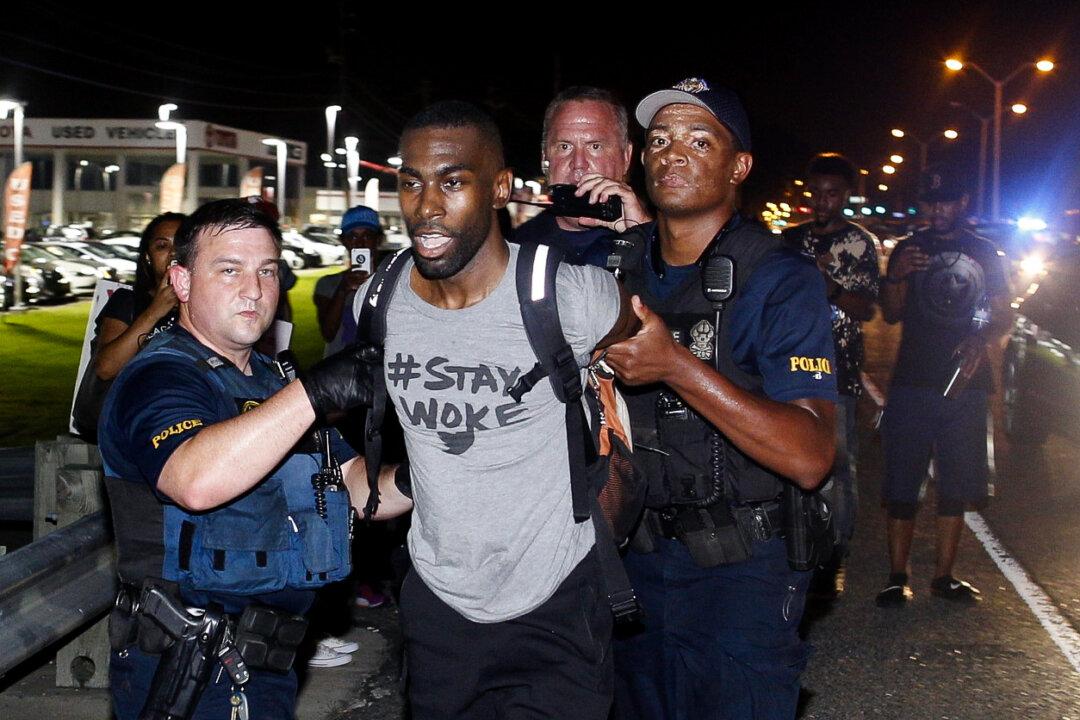The Supreme Court refused on April 15 to take up the appeal of radical activist DeRay Mckesson, who is being sued after a policeman was injured at a 2016 protest that Mr. Mckesson organized in Baton Rouge, Louisiana.
The Black Lives Matter leader is an advocate of political violence. For example, Mr. Mckesson espouses rioting and looting as a means of promoting so-called social justice and an uprising against the U.S. system.





